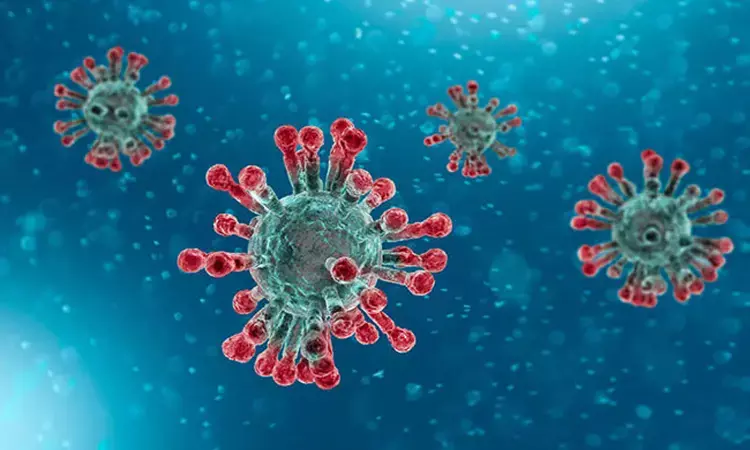- Home
- Medical news & Guidelines
- Anesthesiology
- Cardiology and CTVS
- Critical Care
- Dentistry
- Dermatology
- Diabetes and Endocrinology
- ENT
- Gastroenterology
- Medicine
- Nephrology
- Neurology
- Obstretics-Gynaecology
- Oncology
- Ophthalmology
- Orthopaedics
- Pediatrics-Neonatology
- Psychiatry
- Pulmonology
- Radiology
- Surgery
- Urology
- Laboratory Medicine
- Diet
- Nursing
- Paramedical
- Physiotherapy
- Health news
- Fact Check
- Bone Health Fact Check
- Brain Health Fact Check
- Cancer Related Fact Check
- Child Care Fact Check
- Dental and oral health fact check
- Diabetes and metabolic health fact check
- Diet and Nutrition Fact Check
- Eye and ENT Care Fact Check
- Fitness fact check
- Gut health fact check
- Heart health fact check
- Kidney health fact check
- Medical education fact check
- Men's health fact check
- Respiratory fact check
- Skin and hair care fact check
- Vaccine and Immunization fact check
- Women's health fact check
- AYUSH
- State News
- Andaman and Nicobar Islands
- Andhra Pradesh
- Arunachal Pradesh
- Assam
- Bihar
- Chandigarh
- Chattisgarh
- Dadra and Nagar Haveli
- Daman and Diu
- Delhi
- Goa
- Gujarat
- Haryana
- Himachal Pradesh
- Jammu & Kashmir
- Jharkhand
- Karnataka
- Kerala
- Ladakh
- Lakshadweep
- Madhya Pradesh
- Maharashtra
- Manipur
- Meghalaya
- Mizoram
- Nagaland
- Odisha
- Puducherry
- Punjab
- Rajasthan
- Sikkim
- Tamil Nadu
- Telangana
- Tripura
- Uttar Pradesh
- Uttrakhand
- West Bengal
- Medical Education
- Industry
Can coronavirus spread through contaminated food?

Bethesda, Maryland --The emergence and rapid increase in cases of coronavirus disease 2019 (COVID-19), a respiratory illness caused by a novel coronavirus, pose complex challenges to the global public health, research and medical communities, write federal scientists from NIH's National Institute of Allergy and Infectious Diseases (NIAID) and from the Centers for Disease Control and Prevention (CDC).The United States and other countries instituted temporary travel restrictions, which may have slowed the spread of COVID-19 somewhat in response to the outbreak.
The outbreak of novel coronavirus (2019-nCoV) pneumonia initially developed in one of the largest cities, Wuhan, Hubei province of China since early December 2019has been declared the sixth public health emergency of international concern by the World Health Organization and subsequently named coronavirus disease 2019(COVID-19).
The world is bracing for the impact of the novel coronavirus, COVID-19, which has now spread to over 30 countries, infecting more than 80,000 people with over 2,600 deaths globally. A better understanding of how this virus is transmitted is key to preventing its spread. In two new papers published online in Gastroenterology, investigators from China describe the impact of coronavirus on the digestive tract.
Key findings:
- A significant portion of coronavirus patients has diarrhoea, nausea, vomiting and/or abdominal discomfort before respiratory symptoms.
- Researchers recommend monitoring patients with initial GI distress, which will allow for earlier detection, diagnosis, isolation, and intervention.
- Viral RNA is detectable in the stool of patients with suspected coronavirus; it is now clear that the virus sheds into the stool.
- Viral gastrointestinal infection and potential faecal-oral transmission can last even after viral clearance in the respiratory tract.
- Prevention of faecal-oral transmission should be taken into consideration to control the spread of the virus.
Many research efforts now underway to address COVID-19. These include numerous vaccine candidates proceeding toward early-stage clinical trials as well as clinical trials already underway to test candidate therapeutics, including an NIAID-sponsored trial of the experimental antiviral drug remdesivir.
For more details click on the link: https://doi.org/10.1053/j.gastro.2020.02.054
Hina Zahid Joined Medical Dialogue in 2017 with a passion to work as a Reporter. She coordinates with various national and international journals and association and covers all the stories related to Medical guidelines, Medical Journals, rare medical surgeries as well as all the updates in the medical field. Email: editorial@medicaldialogues.in. Contact no. 011-43720751
Dr Kamal Kant Kohli-MBBS, DTCD- a chest specialist with more than 30 years of practice and a flair for writing clinical articles, Dr Kamal Kant Kohli joined Medical Dialogues as a Chief Editor of Medical News. Besides writing articles, as an editor, he proofreads and verifies all the medical content published on Medical Dialogues including those coming from journals, studies,medical conferences,guidelines etc. Email: drkohli@medicaldialogues.in. Contact no. 011-43720751


